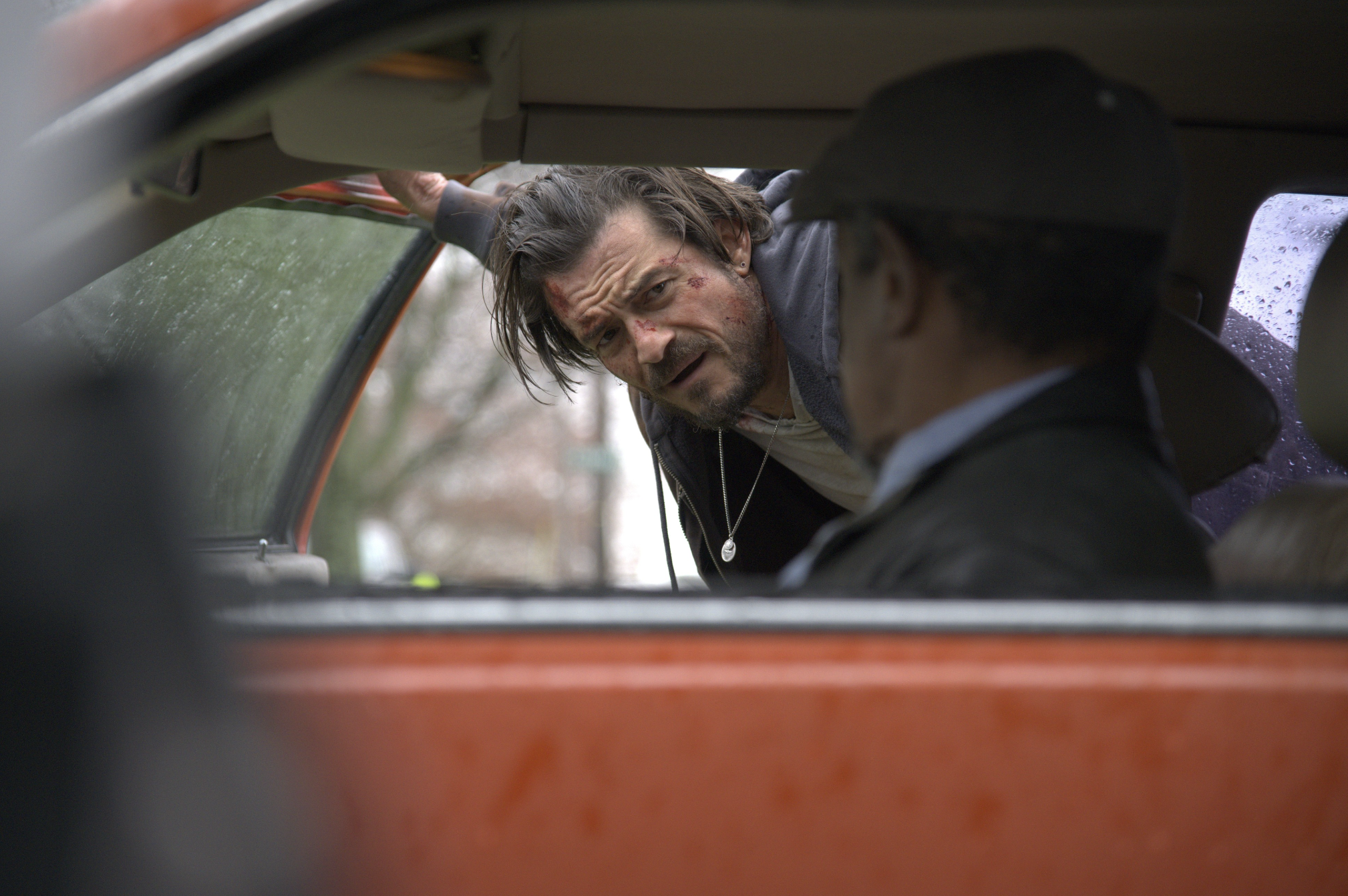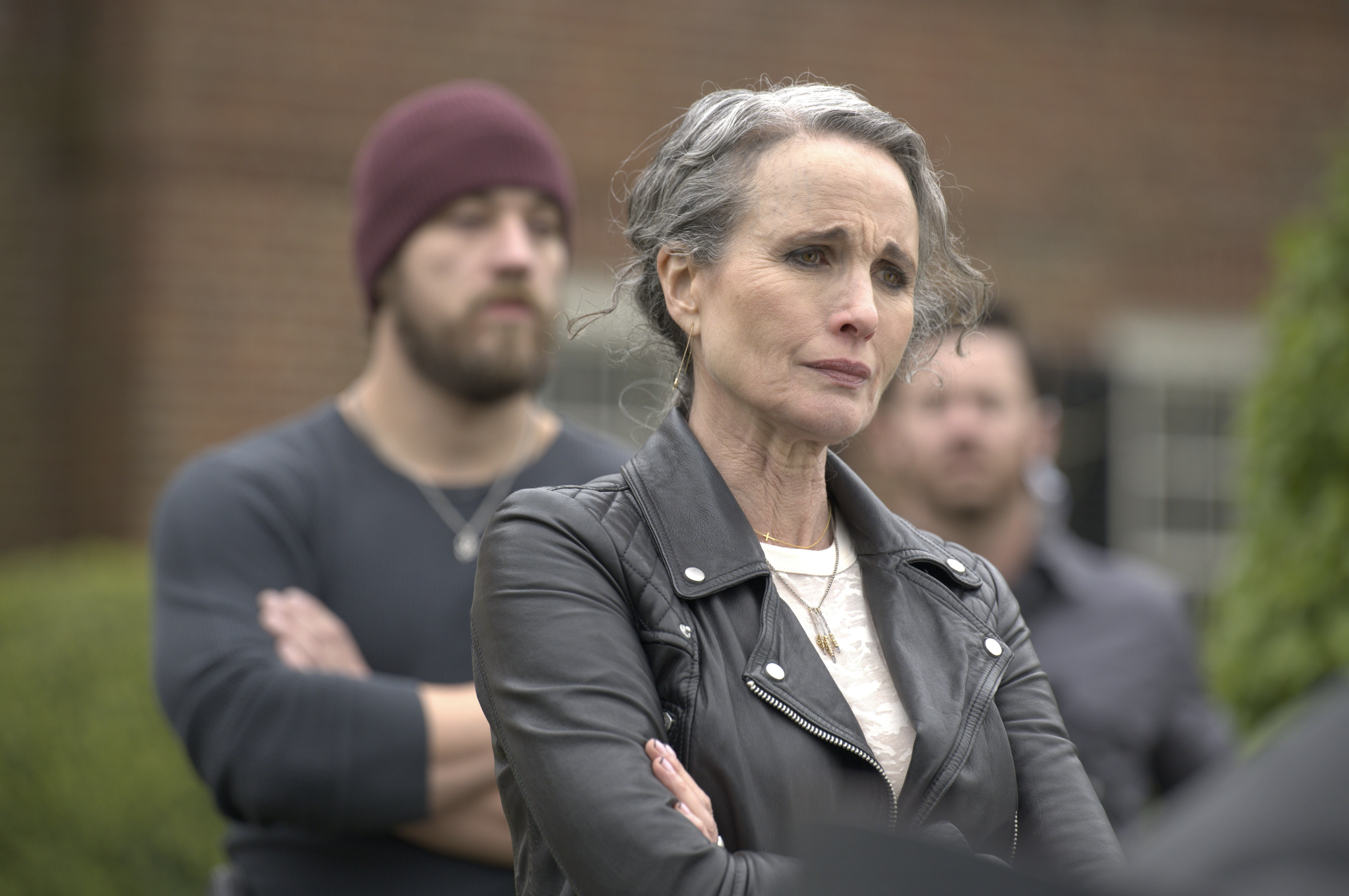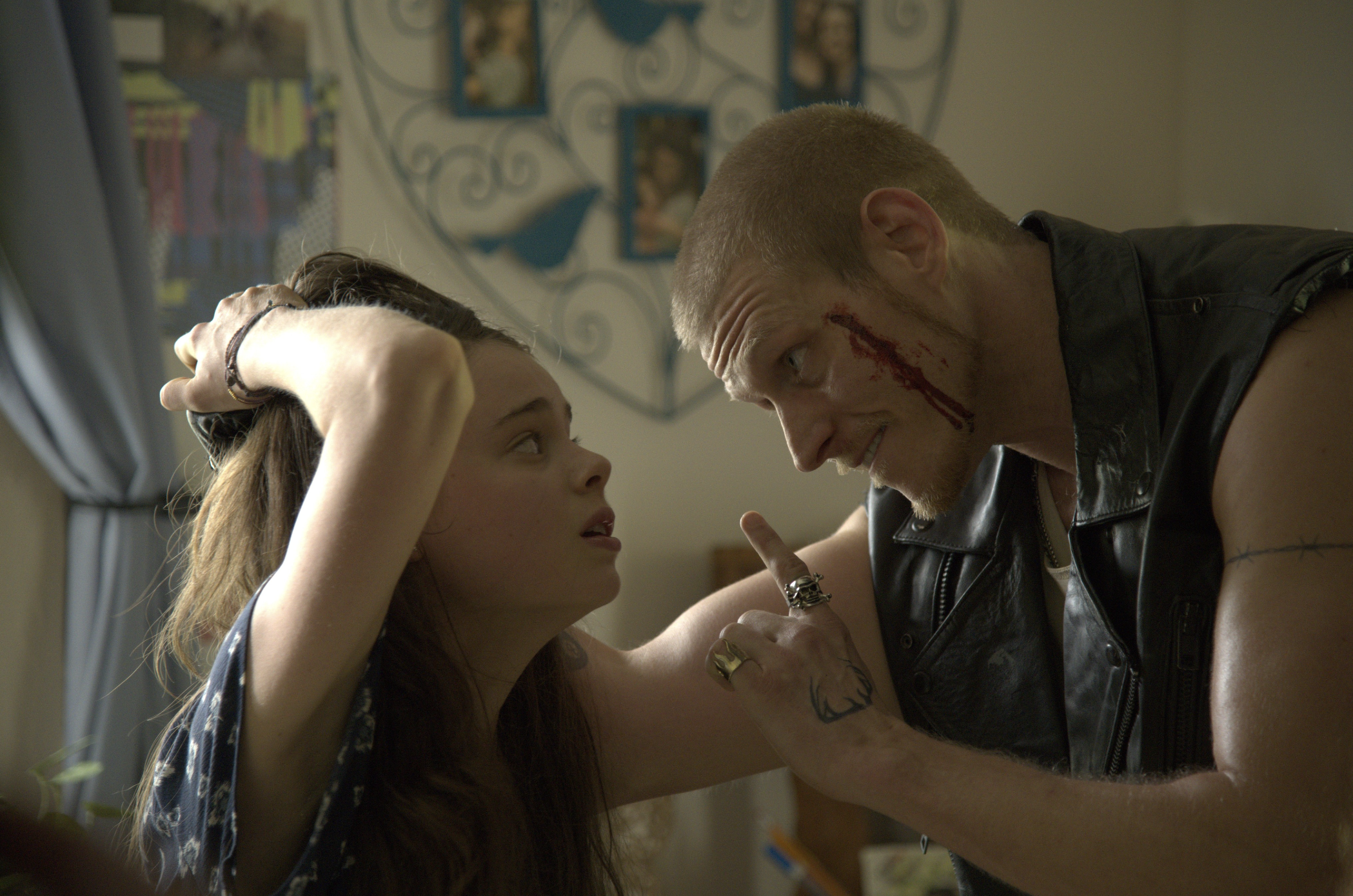A dark vision of rural America and a visceral moviegoing experience | “RED RIGHT HAND”
Over the past decade Appalachian-set thrillers have had a rough go of it. 2015’s “The World Made Straight,” “Them That Follow” (2019), they lacked substance. The Ron Howard-directed “Hillbilly Elegy” and “Devil’s Peak” by Ben Young were misguided efforts whose superior casts did not fulfill their promise. This year thankfully brings us Eshom and Ian Nelms’s “Red Right Hand”, a well-directed Kentucky-based crime film that benefits from solid performances and an authentic sense of place.
A larger-than-life Orlando Bloom is a man named “Cash.” A staple of films such as this one, the character is working hard to move beyond the criminal life he once lived and shake the sins of the past, a task not easily accomplished. Cash lives in the Appalachian town of Odim County, a small community run by the vicious crime boss “Big Cat” (Andie MacDowell). Since the death of his sister, Cash has taken care of his alcoholic brother-in-law, “Finney” (Scott Haze) and innocent niece “Savannah” (Chapel Oaks). After Big Cat forces him back under her thumb (in his bad boy days, he worked for her), Cash does what it takes to assure his family’s safety. After things get tragic, he reconnects to the violent ways of his past to protect the only family he has left.
Jonathan Easley’s screenplay is always interesting and breathes life into the familiar story through solid characterizations. There’s sincerity in the roles; these are not cardboard cutout good-ol’-boys. The characters that inhabit this picture have been affected by the drug issues that plague that area of the country; the most desperate (and those seeking to take advantage of them) falling under the thumb of Big Cat, a true social predator.
Andie MacDowell is the film’s biggest surprise. Her Big Cat character is a fierce persona, a menacing presence that, given her past roles, seemed unfathomable until now. MacDowell plays persuasively and her acting range confirms her standing as a top ranker. The film’s most intense moment is where Big Cat (in a room full of dinner guests and henchmen) proves the power she has over the town and everyone in it. It is a nail-biting sequence of tension. MacDowell sells every viciously intimidating beat of her character like nobody’s business.
Long one of modern cinema’s most interesting character actors, Garret Dillahunt, does very well as “Wilder,” the local preacher who has also overcome a dark past. Complete with a shaved head and tattoos; Wilder is a kind man who doesn’t hide his demons but has overcome them and shares his wisdom of walking the shaky line between good and evil with his congregation. As the character’s arc goes to unexpected places, Dillahunt is careful to avoid cliche and shows a man firm in his beliefs yet dedicated to doing what is right, no matter where it may take his soul.
This is the kind of southern pulp that grabs its audience by the hair and drags them through the violent nature of its characters, all the while existing as a down-home tale bathing in the battle between religious conviction and violence. The directors cut a clear path through this dark narrative by giving certain characters an attainable inner light. While everyone is touched by the devilish, a few have pure intentions. That certain characters have their souls muddied by past violence, does not mean there can be no redemption. As with any human emotion, sometimes one is shocked by violent acts; sometimes one finds them a necessary comeuppance. The picture forces this dichotomy onto his audience, putting them into the moral contrasts of its characters.
If the film has a flaw (besides its rather abrupt final scene), it is an issue that plagues many modern gun play thrillers of today. The actors are trained by weapons handlers, many of whom have law enforcement and/or military backgrounds. These professionals are trained to hold their weapons a certain tactical way. Your “average Joe” would not handle their weapons as if they were part of a Navy Seals attack force. When the actors position their guns in such a manner, it takes away from the believability of a story such as this one. Kentucky small town thugs wouldn’t and couldn’t be so precise in their weapon handling. A small issue, but one that stands out.
In life, the righteous and the wicked coexist. In this story, all dwell in a town of sadness and misfortune that will force everyone to get their hands dirty. As one character states, “You gave the devil an inch.” Easley’s screenplay argues that maybe a final walk with our demons can lead to a redemption of the soul.
“Red Right Hand” is a dark vision of rural America and a visceral experience that adds much-needed fire to the current slate of films.
news via inbox
Nulla turp dis cursus. Integer liberos euismod pretium faucibua





